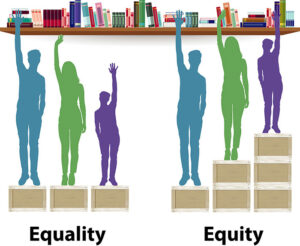
With Networking value exchange at the forefront, this discussion unveils the essential role that professional connections play in fostering mutual growth and innovation. It’s not just about exchanging business cards; it’s about creating meaningful relationships that can lead to new opportunities and insights.
In today’s fast-paced world, understanding the dynamics of networking value exchange is crucial for anyone looking to thrive in their career. By leveraging trust and cultivating relationships, professionals can unlock a wealth of resources and collaborations that drive success in various industries.
Networking Value Exchange
Networking value exchange is a fundamental concept in professional settings, where individuals and organizations share resources, knowledge, and opportunities to create mutual benefits. This exchange goes beyond mere introductions; it’s about creating a cycle of giving and receiving that enhances both parties involved. Establishing a strong network can lead to career advancements, innovative ideas, and even new business ventures.Successful examples of networking value exchange can be found in various industries.
For instance, tech entrepreneurs often collaborate by sharing insights and resources, which can lead to joint ventures or innovative solutions. In the creative sector, artists might exchange skills, such as a graphic designer providing design services in return for marketing assistance from a business strategist. These exchanges not only foster growth but also cultivate strong professional relationships built on trust and mutual respect.Trust and relationships play a critical role in value exchange.
When individuals feel confident in each other’s abilities and intentions, they are more likely to engage in open, honest exchanges. Building a rapport over time can lead to deeper collaboration, where both parties are willing to invest in each other’s success.
Business Innovation
Networking value exchange is a powerful driver of business innovation. When professionals come together to share ideas and resources, they often spark creative solutions that wouldn’t have emerged in isolation. It serves as a fertile ground for brainstorming and problem-solving, enabling businesses to stay competitive in a rapidly changing market.To leverage networking for innovative ideas, consider hosting or attending industry meetups, workshops, or conferences.
These events provide opportunities to connect with thought leaders and innovators who can inspire new ways of thinking. Additionally, collaborating with others on projects can lead to unexpected breakthroughs and innovative solutions.Numerous case studies highlight the impact of networking on business innovation. For example, the partnership between tech giants like Google and various startups has led to advancements in artificial intelligence and cloud computing.
These collaborations demonstrate how networking can facilitate significant innovation that reshapes entire industries.
International Business
In international markets, networking value exchange operates with additional layers of cultural considerations and nuances. Professionals must navigate diverse cultural norms, communication styles, and business practices to forge effective connections. Understanding these differences can enhance relationship-building efforts and lead to successful international collaborations.When engaging in international networking, it’s essential to be aware of cultural etiquette. For instance, in some cultures, establishing a personal relationship before discussing business is crucial, while in others, direct communication is preferred.
Adapting to these cultural expectations can significantly improve networking outcomes.Effective networking strategies in global business contexts include leveraging online platforms like LinkedIn to connect with international professionals and participating in global conferences or webinars. By expanding one’s reach and understanding of different markets, businesses can tap into new opportunities and insights that drive growth.
Business Interviews

Networking value exchange can significantly enhance interview opportunities. Candidates who actively engage their professional networks are often more likely to learn about job openings and secure interviews. Networking allows job seekers to gain insider information about a company, which can be invaluable during the interview process.Techniques for utilizing existing networks to secure interviews include reaching out to former colleagues or industry contacts who can provide referrals or insights into potential job opportunities.
Attending industry events can also lead to connections that facilitate introductions to hiring managers.Communicating value effectively during interviews is paramount. Candidates should articulate how their skills and experiences align with the company’s needs while emphasizing any relevant connections or recommendations from their network. This approach not only demonstrates preparedness but also highlights the candidate’s proactive networking efforts.
Job Search Techniques
Job search techniques that utilize networking value exchange can greatly improve a candidate’s chances of success. By actively engaging with their networks, job seekers can uncover opportunities that may not be advertised publicly. This proactive approach is often more effective than traditional job searching methods.Building a robust network for effective job searching involves attending networking events, joining professional organizations, and leveraging social media platforms to connect with industry peers.
Regularly engaging with contacts, whether through casual meetups or online conversations, keeps the network active and responsive.Following up with networking contacts during a job search is crucial. A simple thank you note after a meeting or a check-in message can help maintain relationships. Keeping contacts informed about one’s job search progress can also prompt them to refer more opportunities or provide additional support.
Business Management
The impact of networking value exchange on business management practices is profound. Effective networking helps managers gather insights, share best practices, and foster partnerships that can lead to operational improvements. Networking can also facilitate resource sharing that enhances overall business performance.Key skills for managers to enhance networking opportunities include active listening, effective communication, and relationship-building capabilities. Managers who prioritize these skills can create a culture of collaboration within their teams, leading to improved performance and innovation.Networking plays a vital role in team dynamics.
When team members feel connected to a broader network, they are more likely to collaborate effectively, share knowledge, and support one another. This interconnectedness can lead to higher team morale and improved productivity.
Marketing Direct
Integrating networking value exchange into direct marketing efforts can yield significant results. Building personal connections with customers and industry peers enhances customer acquisition strategies and strengthens brand loyalty. Personalized approaches often resonate more with potential clients compared to generic marketing tactics.Examples of how networking can enhance customer acquisition include hosting events where customers can interact with the brand and engage with others in the industry.
These interactions build trust and foster relationships that drive sales.In direct marketing, personal connections play a crucial role in success. Building rapport with clients can lead to repeat business and referrals. Marketers should focus on nurturing these relationships through consistent communication and value-sharing.
Business Networking
Networking is significant in business development as it opens doors to new opportunities and helps build strategic relationships. Effective business networking can lead to partnerships, client referrals, and access to valuable market insights, all of which are essential for growth.Best practices for effective business networking include being genuine in interactions, actively listening, and following up with new contacts. Building a reputation as a reliable and knowledgeable resource can enhance networking efforts and lead to fruitful collaborations.Various tools and platforms facilitate networking value exchange, including LinkedIn for connecting with professionals globally, Meetup for attending local networking events, and industry-specific forums that allow for knowledge sharing and collaboration.
Business Outsourcing
Networking value exchange significantly affects outsourcing decisions. Establishing relationships with potential outsourced partners can lead to better understanding, trust, and collaboration. Strong networks can provide insights into the best outsourcing options and practices.Building relationships with outsourced partners is crucial for ensuring successful collaborations. Open communication and regular engagement can help manage expectations and address potential challenges before they escalate.Case studies show that companies that prioritize networking with outsourced partners often achieve improved outcomes.
For instance, organizations that have nurtured relationships with their outsourcing vendors typically report higher quality results and better alignment with their business objectives.
Business Presentation
Incorporating networking value exchange themes into business presentations can enhance the message and engage the audience. Highlighting how collaboration and partnerships have led to successful outcomes can resonate with stakeholders and underscore the importance of networking.Tips for presenting networking benefits to stakeholders include using real-life case studies to illustrate successful collaborations and quantifying the impact of networking on business results.
Visual aids, such as charts and graphs, can effectively communicate data supporting the value of networking.An engaging presentation focused on the value of networking should include interactive elements, encouraging audience participation and discussions. This approach can foster connections among attendees and highlight the collaborative spirit essential for business success.
Business Productivity
The relationship between networking value exchange and productivity improvements is clear. Effective networking can lead to knowledge sharing and resource optimization, which enhances overall business productivity. When individuals collaborate and share insights, they can identify and implement best practices more efficiently.Practices that enhance productivity through networking include forming peer groups for accountability and support, participating in industry forums to exchange ideas, and leveraging contacts for mentorship opportunities.
These interactions can lead to new strategies and solutions that drive productivity.Measuring the impact of networking on business productivity can be achieved through metrics such as increased efficiency, higher output quality, and improved employee satisfaction. Tracking these outcomes can help organizations understand the value of investing in networking efforts.
Restaurant Industry
In the restaurant industry, networking value exchange plays a pivotal role in driving growth and success. Building relationships with suppliers, local farmers, and even neighboring businesses can enhance a restaurant’s offerings and reputation.Examples of successful partnerships formed through networking include collaborative events with local breweries or farms, where restaurants can showcase their menu items while fostering strong community ties. These collaborations not only attract customers but also create a sense of belonging within the local market.Strategies for restaurant owners to leverage networking for growth include attending industry trade shows to connect with suppliers, joining local business associations, and hosting community events to engage with customers and other businesses.
These efforts can lead to increased visibility and customer loyalty.
Resumes Cover Letters
Highlighting networking experiences in resumes and cover letters can significantly improve a candidate’s chances of landing a job. When candidates emphasize their networking activities, they demonstrate initiative and proactive engagement within their industry.A guide for tailoring resumes to reflect networking outcomes involves including specific examples of connections that led to job opportunities or collaborations. Mentioning these networking experiences in cover letters can also illustrate a candidate’s ability to leverage relationships effectively.In job applications, mentioning connections can serve as a valuable endorsement.
When candidates can cite a mutual contact or reference, it adds credibility to their application and can make a positive impression on hiring managers.
Business Retail
The benefits of networking value exchange in retail business development are substantial. Building valuable connections with suppliers, fellow retailers, and industry experts can lead to new opportunities and enhanced operational efficiencies.Strategies for retailers to build valuable connections involve attending trade shows, participating in local business groups, and engaging with customers through social media platforms. These interactions can foster strong relationships that contribute to business growth.Successful retail partnerships formed through networking can be seen in collaborations between local artisans and retail stores, where products are showcased and promoted collectively, benefiting all parties involved.
Risk Management
Networking can aid in identifying and managing business risks effectively. Through relationships with industry peers, organizations can share insights on potential threats and strategies for mitigation. A robust network can serve as an early warning system for emerging risks.Building a network focused on risk mitigation involves establishing connections with professionals who have expertise in risk management, legal affairs, and compliance.
Regular communication with these contacts can help organizations stay informed about best practices and potential challenges.Evaluating networking relationships in risk management contexts is essential. Organizations should assess the reliability and expertise of their contacts to ensure they are receiving accurate and actionable information to mitigate risks effectively.
Business Sales
Networking value exchange plays a crucial role in driving sales success. Establishing relationships with potential clients and industry contacts can lead to new sales opportunities and increased revenue.Techniques for enhancing sales through networking include attending industry networking events, joining sales-focused organizations, and fostering relationships with existing clients to encourage referrals. These strategies can expand a salesperson’s reach and influence.Case studies demonstrate that businesses that prioritize networking often see direct correlations to increased sales figures.
For instance, companies that actively engage in networking report larger client bases and higher conversion rates due to strengthened relationships.
Sales Management
The impact of networking value exchange on sales team management is significant. Effective networking abilities can enhance team collaboration and drive performance, leading to better sales outcomes.Fostering a culture of networking within sales teams involves encouraging open communication and collaboration among team members. Managers should provide opportunities for team members to connect with industry peers and share insights and strategies.Training sales staff in effective networking practices can empower them to build valuable connections that can lead to increased sales.
Regular workshops, mentorship programs, and role-playing scenarios can enhance networking skills within the sales team.
Sales Teleselling
Utilizing networking value exchange in teleselling strategies can improve results significantly. Building rapport quickly over phone calls is essential for engaging prospects and moving them through the sales funnel.Tips for building rapport during teleselling include personalizing conversations based on the prospect’s needs, actively listening to their concerns, and using shared connections to establish credibility. A warm and genuine approach can lead to more successful outcomes.Following up with networking contacts after sales calls is vital for maintaining relationships and nurturing leads.
A simple thank-you message or a check-in call can keep the conversation going and demonstrate a commitment to providing value.
Sales Training
Incorporating networking value exchange in sales training programs can enhance the effectiveness of sales personnel. Training should emphasize the importance of building relationships and leveraging networks for success.Best practices for teaching networking techniques to sales personnel include role-playing scenarios, sharing success stories, and providing tools for managing contacts. Ongoing skill development ensures that sales teams are equipped to build valuable connections.A framework for ongoing networking skill development in sales teams involves regular workshops, peer mentoring, and performance evaluations focused on networking achievements.
This approach fosters a culture of collaboration and support among sales professionals.
Business Security

Networking plays a crucial role in maintaining business security. Establishing relationships with industry contacts can provide insights into security threats and best practices for protection.Strategies for building secure networks of contacts within industries involve engaging with security professionals, attending industry conferences, and participating in forums focused on security issues. These connections can enhance an organization’s ability to respond to potential threats.Identifying the risks associated with poor networking practices in security contexts is essential.
A lack of communication and collaboration can lead to vulnerabilities, making it necessary for organizations to prioritize building and maintaining strong networks.
Small Business
Small businesses can effectively leverage networking value exchange to drive growth and success. Building strong local connections can lead to new opportunities, partnerships, and customer referrals.Examples of small business success stories through networking include local businesses collaborating on joint promotions or events that benefit all involved. These collaborations can enhance community visibility and attract new customers.Strategies for building a strong local network as a small business owner involve attending local business events, joining chambers of commerce, and engaging with community organizations.
These efforts can create a supportive ecosystem for small business growth.
Solo Professionals
Key networking strategies for solo professionals include focusing on building authentic relationships, attending networking events relevant to their industry, and leveraging online platforms to connect with peers and potential clients.Networking offers numerous benefits for individual career growth. By establishing strong connections, solo professionals can access new opportunities, gain referrals, and receive mentorship from industry experts.Methods for solo professionals to create impactful connections include actively participating in discussions at networking events, following up with contacts after meetings, and consistently engaging with their network through social media.
These efforts can help build a strong personal brand and expand professional reach.
Strategic Planning
Networking value exchange can inform strategic planning processes by providing insights and perspectives from a diverse range of professionals. Engaging with industry peers can lead to new ideas that enhance strategic initiatives.Techniques for engaging stakeholders through networking involve hosting brainstorming sessions, attending industry conferences, and fostering collaborative partnerships. These interactions can lead to innovative strategies that drive business growth.Examples of strategic plans developed through network insights include companies that have adopted collaborative approaches to product development based on feedback and ideas shared during networking events.
This approach can lead to more effective and responsive strategic planning.
Team Building
Networking plays a critical role in effective team building. Establishing connections among team members encourages collaboration and fosters a sense of unity, which is essential for maintaining high performance.Techniques for fostering team connections through networking include team-building events, cross-departmental collaborations, and regular social gatherings. These activities can strengthen relationships and enhance overall team dynamics.Case studies of successful team development through networking demonstrate that teams that actively engage in networking activities tend to exhibit higher morale, improved communication, and better problem-solving capabilities.
Venture Capital
Networking value exchange is essential for securing venture capital. Building relationships with potential investors can increase a startup’s chances of attracting funding and support.Strategies for building relationships with potential investors include attending pitch events, seeking introductions through mutual contacts, and actively engaging in industry networks. These connections can facilitate better access to venture capital opportunities.Navigating networking events to attract venture capital requires preparation and strategy.
Entrepreneurs should have a clear value proposition, be ready to share their vision, and actively seek feedback and connections that can lead to funding opportunities.
Workplace Communication
Networking value exchange can enhance workplace communication by fostering open dialogue and collaboration among team members. Strong networks within an organization can facilitate information sharing and problem-solving.Methods for improving communication through networking include creating cross-functional teams, hosting team-building activities, and encouraging informal gatherings. These practices can break down silos and promote a culture of collaboration.Challenges associated with networking in diverse workplace settings may include differing communication styles and cultural expectations.
Organizations should prioritize training and development to build awareness and enhance collaboration across diverse teams.
Workplace Safety
Networking can significantly impact workplace safety practices. Establishing connections with safety professionals and industry experts can provide valuable insights into best practices and emerging safety trends.Strategies for building a network focused on safety improvements include attending safety conferences, joining professional safety organizations, and engaging with local safety advocates. These relationships can enhance a company’s safety culture and practices.Case studies where networking led to enhanced workplace safety outcomes demonstrate that organizations that prioritize safety networking often experience reduced incidents and improved employee well-being.
Building a safety-focused network can lead to proactive measures that protect employees and promote a safe working environment.
End of Discussion
In summary, embracing the concept of networking value exchange can significantly enhance your professional journey. By building trust, sharing knowledge, and fostering relationships, you not only enrich your own career but also contribute to the growth of others. Remember, effective networking is a two-way street that leads to innovation, opportunities, and long-lasting partnerships.
Clarifying Questions
What is networking value exchange?
Networking value exchange refers to the mutual benefits gained through professional relationships, where individuals share resources, knowledge, and opportunities.
How can I start building my network?
Start by attending industry events, joining professional groups, and utilizing social media platforms like LinkedIn to connect with like-minded professionals.
What are some common mistakes in networking?
Common mistakes include only focusing on personal gains, failing to follow up, and neglecting to establish genuine relationships.
How can networking lead to job opportunities?
Networking can uncover unadvertised job openings, provide referrals, and give you insider knowledge about potential roles.
What should I do after networking events?
Follow up with new contacts through email or social media, thanking them for their time and suggesting future collaboration or meetings to strengthen the connection.





